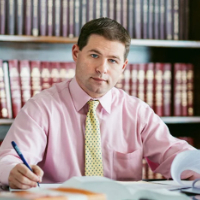Garfield RICO Act Lawyer, New Jersey
Sponsored Law Firm
-
 x
x

Click For More Info:
-
Cohen & Bernstein, L.L.C.
1360 Clifton Ave #309 Clifton, NJ 07012» view mapCriminal Defense We’re In this Together!
We work hand in hand with our clients to ensure all of your questions are answered and progress through your legal issue is seamless.
800-978-7341
Not enough matches for Garfield RICO Act lawyer.
Below are all Garfield Criminal lawyers.
Jose Raul Torres
✓ VERIFIEDJosé R. Torres is experienced in real estate, bankruptcy and criminal defense. He also counsels clients in customs
Ron Bar-Nadav
✓ VERIFIEDBar-Nadav Law Offices is a legal service in Hackensack, NJ specializing in criminal law cases. With years of experience in NJ criminal law, we’re co... (more)
Lindsay A. Bernstein
✓ VERIFIEDI am an experienced attorney in New Jersey with substantial experience in municipal court handling traffic matters and criminal cases. I work hand in ... (more)
Carl G. Zoecklein
✓ VERIFIEDCarl G. Zoecklein, graduated from Seton Hall Law School in 1989, passed the New Jersey Bar in 1990 and became a licensed Attorney in the State of New ... (more)
Leonard J Tarantino
✓ VERIFIEDLeonard J Tarantino is a practicing lawyer in the state of New Jersey.
Joseph John Donatiello
✓ VERIFIEDJoseph Donatiello was born and raised in Northern New Jersey and received his J.D. in 2009 from Rutgers School of Law in Newark. Following law school,... (more)
FREE CONSULTATION
CONTACTFREE CONSULTATION
CONTACT Lindsay Bernstein Clifton, NJ
Lindsay Bernstein Clifton, NJ Practice AreasExpertise
Practice AreasExpertise







